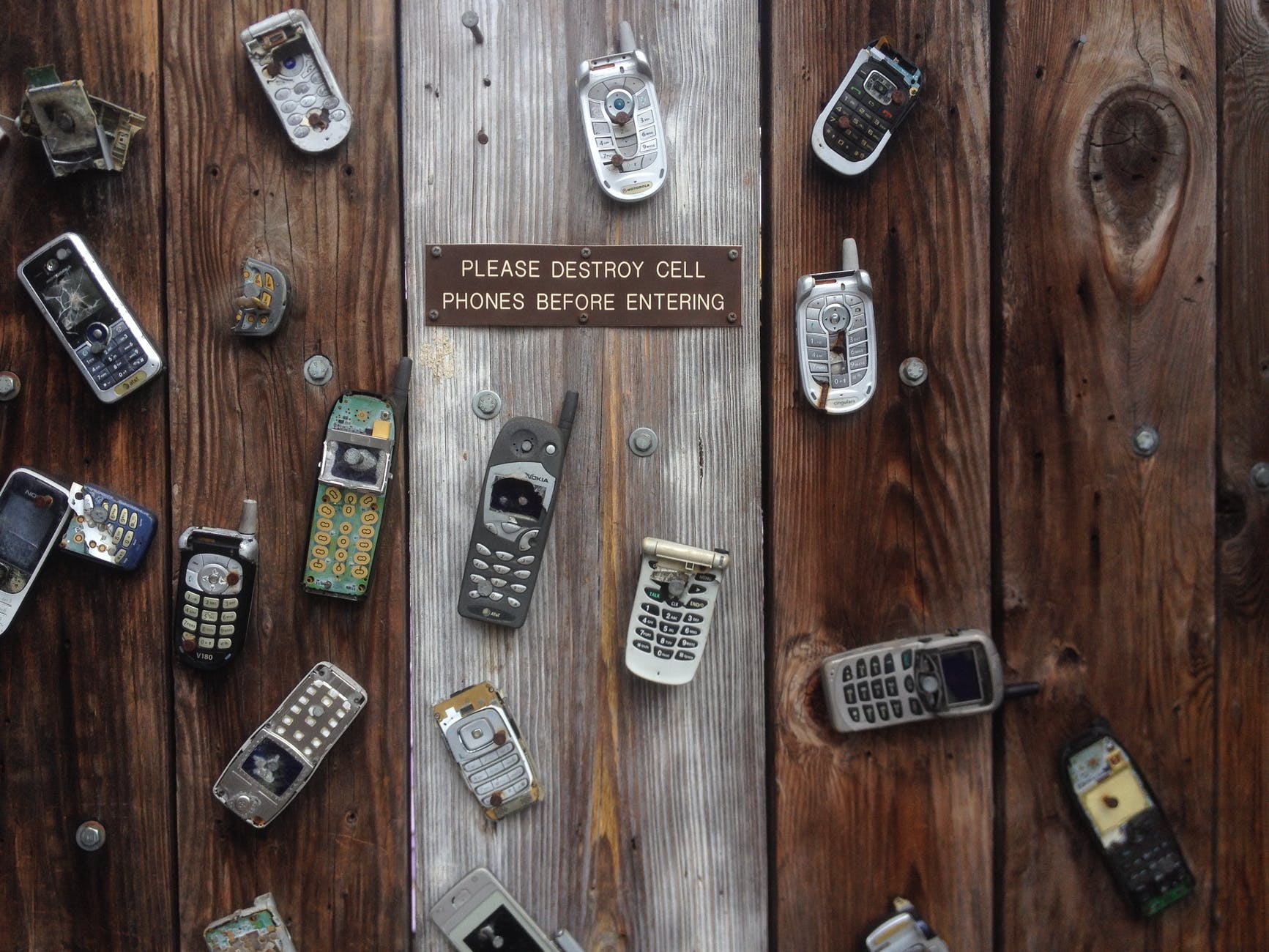
Photo by Pixabay on Pexels.com
[This is Part 2 of a series about solarpunk phones. Here’s a link to Part 1: Repair and Part 3: Design.]
Humans have an amazing capacity for cognitive dissonance. Even though we may know something is bad for us or has significant negative consequences, we’ll still trudge ahead, even if the benefit to an action is small. As Steven Szpajda from This Week in Law is fond of saying, people will give up large amounts of privacy and security for a very small perceived benefit.
Solarpunk Druid had a recent post to this effect, “It’s the events stupid: Why FB is the hardest media to quit” discussing the titular quandary. As we have with fossil fuels, we’ve become reliant on systems whose existence is at cross-purposes with our own.
For this second part of my exploration of what a solarpunk communication device might look like, I want you to consider your relationship with your carrier and web service providers — Verizon, Facebook, etc.

Photo by Pixabay on Pexels.com
Most of us have become comfortable, complacent even, with the idea that the companies that control our communications know everything about our habits. What might be surprising though, is that the information they collect isn’t just available to other multi-national megacorporations, but that private citizens can easily get access to the location of customers of at least AT&T, Sprint, and T-Mobile in the US.
Solarpunk, as a subgenre of speculative fiction is all about “what-if,” so what if we weren’t beholding to megacorps for our communications? What if we decentralized our cellphone and internet access? With the increasing presence of AI subservient to known bad actors, it’s time we start examining how to wean ourselves off of the corporations that feed our information addictions. While taking a break from technology can be beneficial for our mental well-being, I don’t think it’s practical to completely give it up either.
Solarpunk is also about making the “what-if” into a concrete reality, so what technologies exist to help us break free and decentralize our digital lives?

NetworkTopology-Mesh by Foobaz
Mesh Networks
Mesh networking, which we’ve mentioned before, allows various parts of a network to communicate without a single central node, like a cellphone tower, controlling all of the traffic. If everyone in a given geographic area had a smartphone that worked on a mesh network, they wouldn’t need a carrier to contact their friends in that area. This has been touted as a potentially life-saving measure for natural disasters, and is also a powerful tool for people protesting authoritarian regimes. Mesh networks are still in the early stages of development, but they point toward a possibile future of decentralized communication where the users themselves are the network, not some centralized authority that could leave users in the dark either intentionally or because of a cyber attack. Some current implementations include the mesh network going up in Detroit, the Serval Project, GoTenna, and the Althea Mesh.

Photo by rawpixel.com on Pexels.com
Leaving for greener social pastures
Between the shuttering of GeoCities a decade ago and recent major changes to Tumblr and Flikr, denizens of the internet have witnessed great swaths of the web be deleted at the whim of a single entity. At the same time, data breaches like Equifax and direct manipulation of users by Facebook and their partners has made it more clear than ever that you’re the product for these companies.
The Open Source Community has been experimenting with alternative social networks for some time, and with the W3C ActivityPub standard, we’re seeing the emergence of an interconnected, social media Fediverse. What’s really cool about the Fediverse is that people on different platforms can follow each other without having to sign up for a different network. If the current behemoths had started this way, then you could follow your friend on Twitter from your Facebook account without having a Twitter account yourself. Since these platforms are Open Source, anyone can start their own instance, so there are communities built up around common interests (like solarpunk) but you can still hang out online with your friends from a different instance. There are a number of different platforms modeled off existing networks like FB and Twitter, but I’m sure we’ll see new concepts emerge as well. There are even some beta plugins to allow WordPress websites to be federated with ActivityPub, so maybe you’ll see Solarpunk Station in the Fediverse soon!
The Fediverse isn’t the only decentralized social networking solution out there either. Other clients like Scuttlebutt and Steemit have also cropped up in recent years. Scuttlebutt has a large solarpunk contingent already as seen in the partial graph of the network below, while Steemit skews heavily toward the cryptocurrency crowd as it is itself based on the blockchain. Scuttlebutt has some really cool features like being designed around intermittent connections. There’s a lot more information and a fun intro video on their website.
Partial graph of the #scuttlebutt social network, so far. A visualization by vtduncanhttps://t.co/vuqt11YdOR pic.twitter.com/drvdiSZusI
— André Staltz (@andrestaltz) February 6, 2018
Have you tried any of these new social media sites or built a mesh network? Let us know how it went below!
